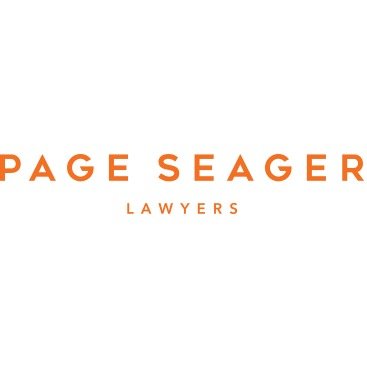Best Art & Cultural Property Law Lawyers in Hobart
Share your needs with us, get contacted by law firms.
Free. Takes 2 min.
List of the best lawyers in Hobart, Australia
About Art & Cultural Property Law in Hobart, Australia
Art & Cultural Property Law in Hobart, Australia, is a specialized area of legal practice that deals with issues related to artworks, cultural heritage, and the protection, preservation, and restitution of cultural property. This field encompasses a variety of legal topics, including intellectual property, provenance research, and international laws governing the transfer and repatriation of cultural objects. Hobart, known for its rich cultural heritage and flourishing art scene, requires legal frameworks to address the unique challenges faced by artists, collectors, museums, and indigenous communities.
Why You May Need a Lawyer
Individuals and organizations may require legal assistance in Art & Cultural Property Law for numerous reasons. Common situations include disputes over the ownership of cultural artifacts, issues concerning the illicit export or import of cultural property, intellectual property rights of artists, and the legal implications of loaning art to galleries and museums. Furthermore, parties may need guidance in negotiating contracts for art sales, commissions, and exhibitions or in dealing with cases of forgery and fraud.
Local Laws Overview
In Hobart, Australia, Art & Cultural Property Law is governed by a combination of federal and state legislation. Key aspects include the Protection of Movable Cultural Heritage Act, which regulates the export of culturally significant items, and the Aboriginal and Torres Strait Islander Heritage Protection Act, designed to preserve ancestral lands and sacred sites. The Copyright Act also plays a significant role in safeguarding the intellectual property rights of artists. Local statutes, like the Tasmanian Heritage Register, help protect historically valuable sites and objects.
Frequently Asked Questions
What is cultural property?
Cultural property refers to items of artistic, historical, or cultural significance, including artworks, artifacts, manuscripts, monuments, and buildings.
Can I export cultural property from Australia?
Exporting cultural property requires a permit if the item is protected under the Protection of Movable Cultural Heritage Act. It's crucial to verify the exportability of any cultural object before proceeding.
Do artists have copyright over their work in Australia?
Yes, artists typically hold copyright to their work in Australia under the Copyright Act, granting them exclusive rights to reproduce, distribute, and display their creations.
What should I do if I acquire a potentially stolen artifact?
If you suspect an artifact may be stolen, consult a legal expert specializing in Art & Cultural Property Law to assess the provenance and legality of the acquisition.
How can artists protect their public installations from being altered?
Artists can protect their public installations through moral rights provisions under the Copyright Act, which ensures their works are not misused or altered without permission.
What legal actions can indigenous communities take to protect their cultural property?
Indigenous communities can use the Aboriginal and Torres Strait Islander Heritage Protection Act to safeguard their cultural property and fight against misuse or desecration.
Are there tax implications for donating art to a museum?
Yes, donating art may offer tax benefits under Australia's Cultural Gifts Program, which encourages donations to public art galleries and museums by providing tax deductions.
How are art disputes usually resolved in Australia?
Art disputes can often be resolved through negotiation, mediation, or arbitration. If these methods fail, litigation may be necessary.
Can I recover art stolen from my home?
Recovery will depend on various factors, and you should report the theft to law enforcement and seek legal advice to explore options for recovery.
What steps should a gallery take to verify the provenance of an artwork?
Galleries should conduct thorough due diligence, including tracing ownership history, verifying documentation, and consulting experts as needed to confirm provenance.
Additional Resources
If you seek further information or assistance, consider reaching out to these resources:
- Attorney-General’s Department - for legislative guidelines on cultural property
- Arts Law Centre of Australia - for legal advice specifically tailored to artists
- Australian Copyright Council - for issues related to copyright and intellectual property
- Tasmanian Heritage Council - for matters related to heritage protection
- National Association for the Visual Arts (NAVA) - for broader support within the Australian art community
Next Steps
Should you need legal assistance in Art & Cultural Property Law, begin by identifying your needs and concerns clearly. Seek a specialized lawyer in Hobart with expertise in this legal field. Prepare all relevant documentation and background information on your case to present to your lawyer for a more efficient consultation. Consider initial consultations to discuss potential legal strategies and understand the resources required for your matter. Exploring professional directories or local bar associations can be helpful for finding qualified legal experts in this area.
Lawzana helps you find the best lawyers and law firms in Hobart through a curated and pre-screened list of qualified legal professionals. Our platform offers rankings and detailed profiles of attorneys and law firms, allowing you to compare based on practice areas, including Art & Cultural Property Law, experience, and client feedback.
Each profile includes a description of the firm's areas of practice, client reviews, team members and partners, year of establishment, spoken languages, office locations, contact information, social media presence, and any published articles or resources. Most firms on our platform speak English and are experienced in both local and international legal matters.
Get a quote from top-rated law firms in Hobart, Australia — quickly, securely, and without unnecessary hassle.
Disclaimer:
The information provided on this page is for general informational purposes only and does not constitute legal advice. While we strive to ensure the accuracy and relevance of the content, legal information may change over time, and interpretations of the law can vary. You should always consult with a qualified legal professional for advice specific to your situation.
We disclaim all liability for actions taken or not taken based on the content of this page. If you believe any information is incorrect or outdated, please contact us, and we will review and update it where appropriate.









